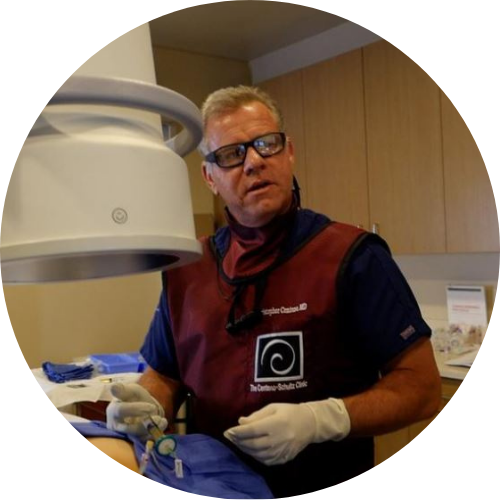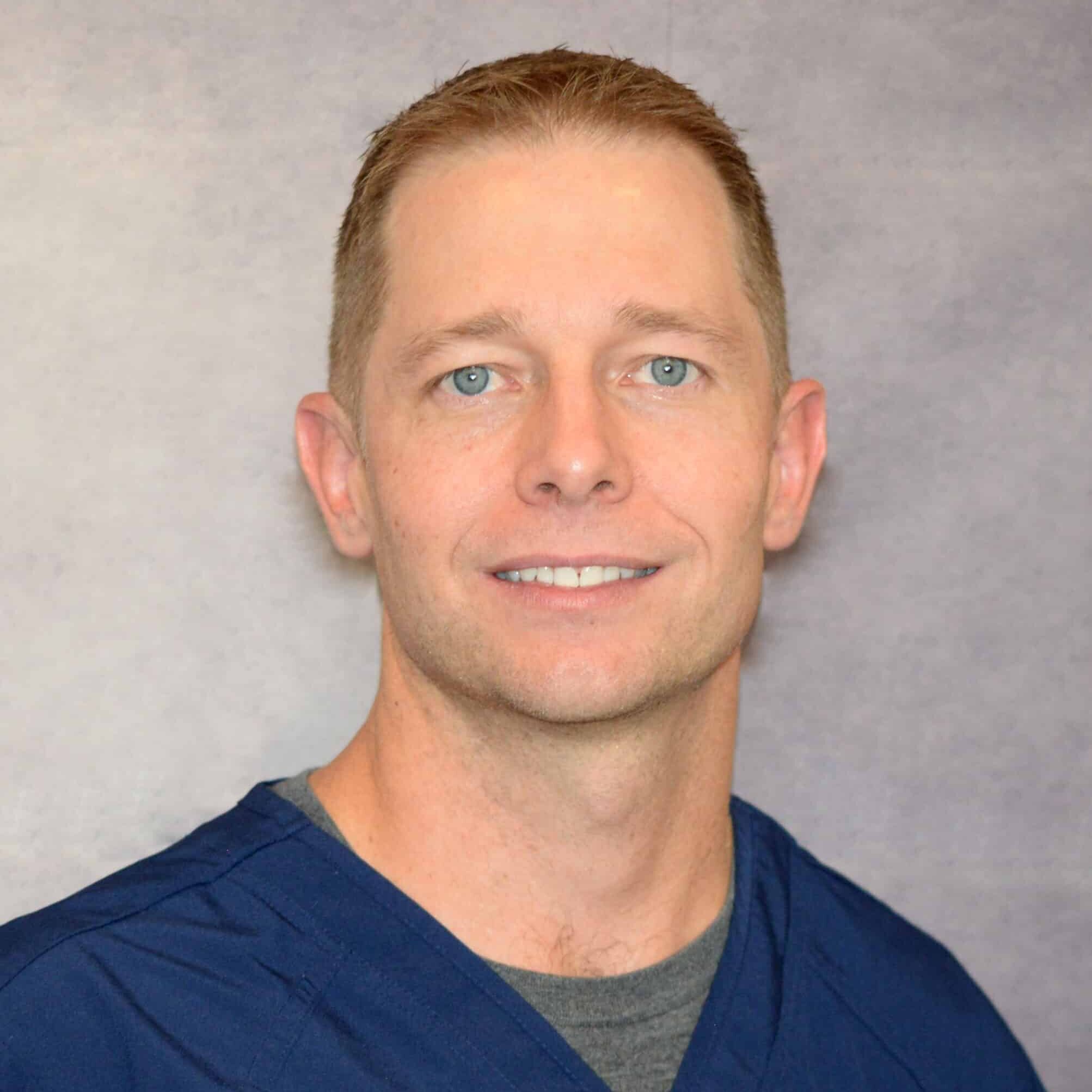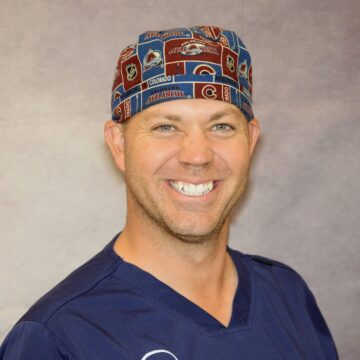Stiff Neck Remedy: Treatments and Exercises To Ease The Pain
Am I a Candidate?The evolution of stiff neck remedies has been a testament to human ingenuity and the relentless pursuit of comfort and well-being. Throughout history, individuals have grappled with the discomfort and pain associated with stiff necks, prompting them to explore various treatments and interventions.
From ancient folk remedies and traditional healing practices to modern medical advancements and therapeutic innovations, the journey to alleviate the discomfort of a stiff neck has been marked by both time-honored wisdom and cutting-edge science.
In this discussion, we will delve into various remedies for a stiff neck, including traditional therapies and surgical interventions.
Symptoms of Stiff Neck
- Neck pain: The primary symptom of a stiff neck is localized pain in the neck area. This discomfort can vary in intensity, from mild to severe.
- Limited range of motion: A stiff neck often leads to a decreased ability to turn or tilt the head in various directions. This limited range of motion can make it challenging to look over one’s shoulder or perform everyday activities involving neck movement.
- Muscle tension: The neck muscles may feel tight and tense, contributing to the stiffness. This muscle tension can lead to discomfort and restricted movement.
- Lack of flexibility: Stiffness in the neck region can result in reduced flexibility, making it difficult to perform simple tasks like tilting the head forward or backward. This inflexibility may cause discomfort and pain when trying to move the neck.
- Neck soreness: In addition to pain, the neck might feel sore and tender to the touch. Pressure on the affected area can exacerbate this soreness.
- Headaches: Stiff necks can sometimes be accompanied by tension headaches, which may originate from the strained neck muscles.
- Radiating pain: In some cases, the pain from a stiff neck may radiate to the shoulders or upper back, causing discomfort in these areas as well.
- Difficulty sleeping: Sleeping with a stiff neck can be uncomfortable, as finding a comfortable head and neck position may be challenging.
- Swelling or inflammation: Inflammation of the neck muscles may lead to swelling and further exacerbate discomfort.
Causes of Stiff Neck
A stiff neck can have various possible causes and often results from a combination of factors. Here, we’ll discuss the common causes that can lead to a stiff neck:
Repetitive Neck Motion
Repetitive neck motion, especially in occupations or activities that require frequent and sustained neck movements, can strain the neck muscles over time. This repetitive motion can lead to stiffness and discomfort.
Poor Posture and Ergonomics
Maintaining poor posture, such as slouching or hunching, can put excessive strain on the neck and its supporting muscles. Additionally, using improperly configured workstations or unsupportive chairs can contribute to neck stiffness over time.
Clenched Jaw
Clenching the jaw, a condition known as bruxism, can cause tension to radiate from the jaw muscles to the neck, leading to stiffness and discomfort in the neck region.
Stress
Stress and anxiety can result in muscle tension throughout the body, including the neck and shoulders. This heightened muscle tension can cause the neck muscles to become tight and lead to a stiff neck.
Osteoarthritis
Osteoarthritis, a degenerative joint disease, can affect the cervical spine, leading to the breakdown of the neck’s cartilage and the development of bone spurs. This can cause pain, reduced mobility, and stiffness in the neck.
Injuries
Injuries such as whiplash from car accidents or sports-related trauma can damage the neck’s soft tissues and result in muscle strain and stiffness. In more severe cases, injuries can lead to conditions like cervical muscle strains or herniated discs.
Muscle Strain
Overexertion or sudden movements that strain the neck muscles can lead to stiffness and discomfort.
Sleeping Position
Sleeping in an awkward or uncomfortable position can cause the neck to remain in an unnatural posture for an extended period, resulting in stiffness upon waking.
Underlying Medical Conditions
Certain medical conditions, such as fibromyalgia or cervical dystonia, can lead to chronic neck stiffness and discomfort.
Infections
In some cases, infections in the throat or neck area, such as viral or bacterial infections, can cause neck discomfort and stiffness as a symptom.
At-Home Treatments for Stiff Neck
Here are some home remedies for relieving a stiff neck:
- Rest: Rest is crucial when dealing with a stiff neck. Avoid activities that may strain the neck further. Try to keep your head and neck in a comfortable, neutral position, and avoid excessive movement.
- Ice pack: Applying an ice pack to the affected area can help reduce inflammation and numb the pain. Place a cloth or towel between the ice pack and your skin to prevent frostbite, and apply it for 15-20 minutes every hour.
- Warm compress: After a day or two of using ice, you can switch to a warm compress. This can help relax the neck muscles and increase blood flow to the area. Use a warm, damp towel or heating pad for 15-20 minutes at a time.
- Adjusted sleeping arrangements: If your stiff neck is a result of poor sleeping posture, consider adjusting your sleeping arrangements. Use a supportive pillow that keeps your neck in a neutral position, and try to sleep on your back or side with a pillow between your knees for added comfort.
Physical Exercise for Stiff Neck
Exercises can be an effective way to remedy a stiff neck, as they help improve flexibility, reduce muscle tension, and enhance blood circulation in the neck area. Here are two categories of exercises that can be done to alleviate a stiff neck:
Stretching Exercises
- Neck tilt: Gently tilt your head to one side. Do this by bringing one ear toward your shoulder. Maintain this position for 15-30 seconds and then repeat for the other side. This stretch focuses on the side of the neck.
- Neck rotation: Slowly turn your head to one side, as if you’re trying to look over your shoulder. Maintain this position for 15-30 seconds and then repeat for the other side. This helps improve neck mobility.
- Neck extension: Carefully tilt your head backward, as if you’re trying to look at the ceiling. Hold for 15-30 seconds. This stretch aids in relieving tension in the back of the neck.
- Chin tucks: You can do this either sitting or standing with a straight back. Gently tuck your chin in towards your chest, hold for a few seconds, and then release. This exercise helps correct forward head posture and reduce strain on the neck.
Low-Impact Exercises
- Neck isometrics: Place your hand against your forehead and push gently while simultaneously resisting the pressure with your head. Do this again by placing your hand on the back of your head. These exercises help to strengthen neck muscles.
- Shoulder rolls: For this roll, move your shoulders in a circular motion. This exercise reduces tension in the neck and upper back.
- Walking: Low-impact aerobic exercises, such as walking, can help improve overall posture, which can indirectly alleviate neck stiffness. Maintain proper posture while walking to prevent future neck issues.
Stiff Neck Remedies Through Alternative Medicine
Alternative medicine practices such as acupuncture and massage can be beneficial for alleviating the discomfort associated with a stiff neck. Here’s a brief overview of these approaches:
Acupuncture
Acupuncture is an ancient Chinese therapy that involves the insertion of thin needles into specific points on the body.
In the context of a stiff neck, acupuncture may target specific acupuncture points in the neck, shoulders, and back to release tension, reduce inflammation, and promote relaxation. It can help reduce muscle tension, increase blood circulation, and stimulate the release of endorphins, which are natural pain relievers. It may provide relief from neck pain and stiffness.
Massage
Massage therapy involves the manipulation of soft tissues through various techniques such as kneading, pressing, and stroking. It aims to relax muscles and improve circulation. A massage therapist may use techniques like Swedish massage, deep tissue massage, or myofascial release to target the stiff neck area.
Massaging the neck and shoulders can help relieve muscle tension and improve flexibility. Massage can improve blood flow, reduce muscle tightness, and promote relaxation. It may help with pain relief, reduce muscle soreness, and enhance overall neck mobility, making it an effective option for stiff neck relief.
When to See a Doctor
You must see a doctor when you are suffering from:
- Pain from injury or car collision: Seek medical attention for a stiff neck if it is the result of a recent injury, especially a car collision, as it may indicate underlying trauma to the cervical spine.
- Pain spreading down arms and legs: Medical evaluation is essential when a stiff neck is accompanied by radiating pain down the arms or legs, as it could be a sign of nerve compression or a herniated disc.
- Weakness in limbs: If a stiff neck is associated with weakness in the arms or legs, it may indicate spinal cord compression or neurological issues, requiring immediate medical assessment.
- Headache: A stiff neck accompanied by a severe, persistent headache, especially if it’s sudden or worsening, may be indicative of a more serious underlying condition, necessitating medical attention.
Medications For Stiff Neck
Prescription and over-the-counter (OTC) medications can be used to relieve the symptoms of a stiff neck. Here are the main categories of medication used for this purpose:
- OTC options: Non-prescription pain relievers like ibuprofen (Advil, Motrin), naproxen (Aleve), and acetaminophen (Tylenol) can help reduce pain and inflammation associated with a stiff neck. These are typically available without a prescription and can be effective for mild to moderate pain.
- Prescription medications: In cases of severe pain, a healthcare provider may prescribe stronger pain relievers, such as prescription-strength nonsteroidal anti-inflammatory drugs (NSAIDs) or opioid medications. These are typically used for short periods and under close medical supervision, due to the risk of side effects and dependency.
- Muscle relaxants: Muscle relaxants like cyclobenzaprine (Flexeril), methocarbamol (Robaxin), or tizanidine (Zanaflex) may be prescribed to relieve muscle tension and spasms in the neck and shoulder area. These medications are typically used for a short duration, as they can cause drowsiness and have the potential to cause dependence.
- Steroids: In cases of severe inflammation or pain associated with conditions like herniated discs, a healthcare provider may prescribe corticosteroids, often administered as oral prednisone or as an injection. Steroids can help reduce inflammation and relieve symptoms, but they are typically used for short periods due to potential side effects.
Traditional Medical Procedures for Chronic Stiff Neck
Traditionally, chiropractic medicine and surgery are two common medical procedures undertaken for a chronic stiff neck. Here’s an overview of the pros and cons of two procedures commonly used in traditional medicine to remedy chronic stiff neck:
Chiropractic Manipulation
The pros include:
- Non-invasive: Chiropractic manipulation is a non-invasive treatment approach, involving manual adjustments of the spine and neck. It avoids the risks associated with surgical procedures.
- Pain relief: Chiropractic care can provide immediate pain relief for some individuals with chronic neck stiffness and may improve overall neck mobility.
- Holistic approach: Chiropractors often consider the whole body’s alignment, emphasizing the importance of spinal health and overall well-being.
The cons include:
- Efficacy variability: The effectiveness of chiropractic manipulation for neck issues varies among individuals, and it may not provide long-term relief for all patients.
- Risk of injury: There is a small risk of injury associated with spinal manipulation, including rare cases of stroke or nerve damage. It’s crucial to consult a licensed and skilled chiropractor.
- Cost: Chiropractic care may not always be covered by insurance, making it an expensive treatment option for some patients.
Surgery
The pros of surgery include:
- Definitive treatment: Surgical interventions, such as cervical fusion or discectomy, can provide a definitive solution for specific chronic neck issues, including herniated discs or severe spinal abnormalities.
- Long-term relief: In cases where conservative treatments have failed, surgery may offer long-term relief and improvement in quality of life.
- Precision: Surgeons can precisely address the underlying structural issues contributing to the stiff neck, correcting spinal abnormalities.
The cons include:
- Invasive: Surgery is an invasive procedure and carries inherent risks, including infection, bleeding, and complications related to anesthesia.
- Recovery time: Recovery from neck surgery can be lengthy, often involving restrictions on physical activities and daily life for an extended period.
- Risk of complications: Surgery may lead to complications, such as nerve damage, persistent pain, or reduced range of motion. It should be considered only when conservative treatments are ineffective or when there’s a significant structural issue that requires surgical intervention.
Advanced Remedies for Chronic Stiff Neck
The Centeno-Schultz Clinic (CSC) specializes in regenerative medicine and interventional orthopedics, which offer a range of modern and non-surgical approaches to address conditions like a stiff neck. These approaches aim to provide relief by stimulating the body’s natural healing processes. Here are some of the treatments and therapies typically available at CSC:
- Platelet-rich plasma (PRP) therapy: PRP therapy involves drawing a small sample of the patient’s blood, processing it to concentrate platelets and growth factors, and then injecting the PRP into the affected area. In the case of a stiff neck, PRP can be used to reduce inflammation, promote tissue healing, and alleviate pain. It is minimally invasive and utilizes the body’s own resources to accelerate healing. It may provide long-term relief for chronic neck issues.
- Prolotherapy: Prolotherapy, or regenerative injection therapy, involves injecting a solution, often containing dextrose or other irritants, into the affected ligaments and tendons. This stimulates the body’s natural healing process, promoting the repair of weakened or damaged structures. It can strengthen and stabilize weakened neck ligaments and tendons, reducing pain and improving neck mobility.
- Bone marrow aspirate concentrate (BMAC): BMAC therapy involves aspirating bone marrow from the patient’s hip or another site and processing it to isolate stem cells and growth factors. These concentrated cells are then injected into the affected area to promote healing and regeneration. It can target the root causes of chronic neck stiffness, such as damaged or degenerated tissue, and facilitate tissue repair and regeneration.
- Interventional procedures: CSC offers a range of interventional orthopedic procedures, including epidural steroid injections, facet joint injections, and nerve blocks, which can be tailored to the specific needs of patients with neck pain and stiffness. These procedures can provide temporary relief from pain and stiffness by reducing inflammation or targeting specific pain generators in the neck.
- Physical therapy and rehabilitation: Physical therapy and rehabilitation programs may be recommended to improve neck mobility, strengthen supporting muscles, and correct posture and movement patterns contributing to neck stiffness. These programs can help enhance long-term neck health and function and prevent the recurrence of stiffness.
There Is a Solution for Stiff Neck Pain
Now you know the causes, symptoms, and available treatments for neck-related chronic pain. You have read about traditional treatments, including medications, physical therapy, chiropractic care, and surgery. In contrast, CSC offers pioneering regenerative medicine and minimally invasive interventions to address chronic neck issues.
CSC provides advanced therapies such as PRP, prolotherapy, BMAC therapy, and interventional procedures tailored to the patient’s specific diagnosis. These regenerative approaches stimulate the body’s natural healing processes, promote tissue repair, and offer long-term relief without the need for surgery.
Individuals seeking alternatives to traditional treatments for neck pain and stiffness may benefit from CSC’s innovative and personalized approaches.
Leave chronic stiff neck pain in the past. Make an appointment with us today!

Christopher J. Centeno, MD
Christopher J. Centeno, M.D. is an international expert and specialist in Interventional Orthopedics and the clinical use of bone marrow concentrate in orthopedics. He is board-certified in physical medicine and rehabilitation with a subspecialty of pain medicine through The American Board of Physical Medicine and Rehabilitation. Dr. Centeno is one of the few physicians in the world with extensive experience in the culture expansion of and clinical use of adult bone marrow concentrate to treat orthopedic injuries. His clinic incorporates a variety of revolutionary pain management techniques to bring its broad patient base relief and results. Dr. Centeno treats patients from all over the US who…
Read more
John Schultz, MD
John R. Schultz M.D. is a national expert and specialist in Interventional Orthopedics and the clinical use of bone marrow concentrate for orthopedic injuries. He is board certified in Anesthesiology and Pain Medicine and underwent fellowship training in both. Dr. Schultz has extensive experience with same day as well as culture expanded bone marrow concentrate and sees patients at the CSC Broomfield, Colorado Clinic, as well the Regenexx Clinic in Grand Cayman. Dr. Schultz emphasis is on the evaluation and treatment of thoracic and cervical disc, facet, nerve, and ligament injuries including the non-surgical treatment of Craniocervical instability (CCI). Dr. Schultz trained at George Washington School of…
Read more
John Pitts, M.D.
Dr. Pitts is originally from Chicago, IL but is a medical graduate of Vanderbilt School of Medicine in Nashville, TN. After Vanderbilt, he completed a residency in Physical Medicine and Rehabilitation (PM&R) at Emory University in Atlanta, GA. The focus of PM&R is the restoration of function and quality of life. In residency, he gained much experience in musculoskeletal medicine, rehabilitation, spine, and sports medicine along with some regenerative medicine. He also gained significant experience in fluoroscopically guided spinal procedures and peripheral injections. However, Dr. Pitts wanted to broaden his skills and treatment options beyond the current typical standards of care.
Read more
Jason Markle, D.O.
Post-residency, Dr. Markle was selected to the Interventional Orthopedic Fellowship program at the Centeno-Schultz Clinic. During his fellowship, he gained significant experience in the new field of Interventional Orthopedics and regenerative medicine, honing his skills in advanced injection techniques into the spine and joints treating patients with autologous, bone marrow concentrate and platelet solutions. Dr. Markle then accepted a full-time attending physician position at the Centeno-Schultz Clinic, where he both treats patients and trains Interventional Orthopedics fellows. Dr. Markle is an active member of the Interventional Orthopedic Foundation and serves as a course instructor, where he trains physicians from around the world.
Read more
Brandon T. Money, D.O., M.S.
Dr. Money is an Indiana native who now proudly calls Colorado home. He attended medical school at Kansas City University and then returned to Indiana to complete a Physical Medicine and Rehabilitation residency program at Indiana University, where he was trained on non-surgical methods to improve health and function as well as rehabilitative care following trauma, stroke, spinal cord injury, brain injury, etc. Dr. Money has been following the ideology behind Centeno-Schultz Clinic and Regenexx since he was in medical school, as he believed there had to be a better way to care for patients than the status quo. The human body has incredible healing capabilities…
Read moreAm I a Candidate?
To answer this question, fill out the candidate form below to request a new patient evaluation, and a patient advocate will reach out to you to determine your next steps. Your one-hour, in-office or telemedicine evaluation will be with one of the world’s experts in the field of Interventional Orthopedics.